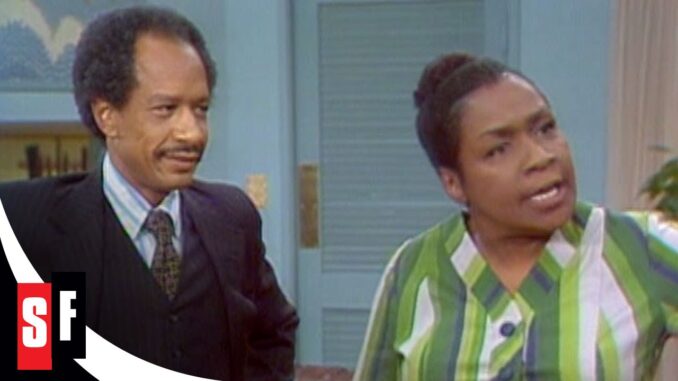
The shrill, jubilant notes of "Movin' On Up" are etched into the collective American consciousness, a sonic emblem of ambition realized. The Jeffersons wasn't just a sitcom; it was a cultural phenomenon, a mirror held up to America's evolving racial and class dynamics. At its boisterous heart stood George Jefferson, the self-made dry-cleaning magnate, a man who personified Black aspiration and the prickly pride that often accompanied it. And perhaps no recurring comedic trope on the show was more potent, more hilariously infuriating, and more deeply illustrative than the moment George Jefferson was mistaken for the butler.
From the moment he stepped into that sprawling East Side deluxe apartment, George was a man on a mission: to prove his worth, his wealth, and his undeniable status. He had dragged his family, kicking and screaming (well, mostly Louise, his patient wife), from the working-class Queens neighborhood to the very pinnacle of New York affluence. Every new piece of furniture, every designer label, every sneer at Tom and Helen Willis (his white, liberal neighbors) was a declaration: "I made it! I belong here!" His identity was inextricably linked to his hard-won financial success, a shield against the slights and stereotypes he had undoubtedly faced his entire life.
So, imagine the scene: George, resplendent in one of his sharp suits, perhaps brandishing a Scotch, holding court in his lavish living room. A new, well-meaning, utterly clueless white socialite or business associate walks in. They scan the room, perhaps looking for a servant, and their eyes land on the only Black man present. With a polite, yet condescending, smile, they offer a request: "Could you fetch me a drink, please?" or "The coat check is over there, isn't it?"
For George Jefferson, this isn't just a minor misunderstanding; it's a gut punch, an existential assault. The blood visibly drains from his face, replaced by a flush of disbelief. His eyes narrow, the veins in his neck bulge, and then, like a sonic boom of indignation, his voice escalates into that iconic, high-pitched squawk. "I ain't no butler! I OWN this apartment! I'M George Jefferson!" The ensuing tirade, often punctuated by flailing arms and a sputtering indignation, was a masterclass in comedic rage.
But the brilliance of this running gag lay deeper than mere slapstick. It was a searing commentary on lingering societal prejudices. Even as George had "moved on up," the subtle (or not-so-subtle) expectations based on race persisted. Despite his wealth, his address, his designer clothes, the default assumption for some in the "old money" world was that a Black man in a serving capacity was more probable than a Black man as the owner. It laid bare the fragility of earned status in the face of ingrained, often unconscious, stereotypes. It showed that while money could buy a deluxe apartment, it couldn't instantly erase generations of racial assumptions.
For George, being mistaken for the butler was the ultimate negation of his journey. He wasn't just being asked to perform a menial task; he was being stripped of his hard-won identity as a self-made entrepreneur, a homeowner, a man of power. He was being relegated back to a role historically associated with servitude, a direct affront to everything he had fought to overcome. His outrage wasn't just about pride; it was about dignity, about the relentless fight for recognition and respect in a world that still often saw him through a narrow, prejudiced lens.
The humor, of course, derived from the sheer incongruity of it all. George Jefferson, the loud, proud, often prejudiced man himself, reduced to sputtering indignity by such an innocent (yet loaded) mistake. It was a reversal of expectations, a moment where the powerful became momentarily powerless, the owner mistaken for the owned. Louise, ever the calming influence, would often try to soothe the situation, while Florence, their actual maid, would invariably chime in with a cutting, sarcastic remark that only further inflamed George's temper.
The "George as butler" trope was more than just a laugh line; it was a microcosm of The Jeffersons' enduring legacy. It illustrated the complexities of upward mobility for Black Americans in the late 20th century, the triumphs and the lingering battles. It showed that even when you finally get to the deluxe apartment in the sky, sometimes, the old assumptions still follow, ready to greet you at the door. And for George Jefferson, a man who never shied away from a fight, that was an insult he was always ready to meet with a resounding, unforgettable squawk of defiance.
